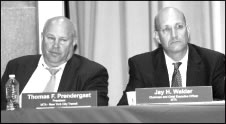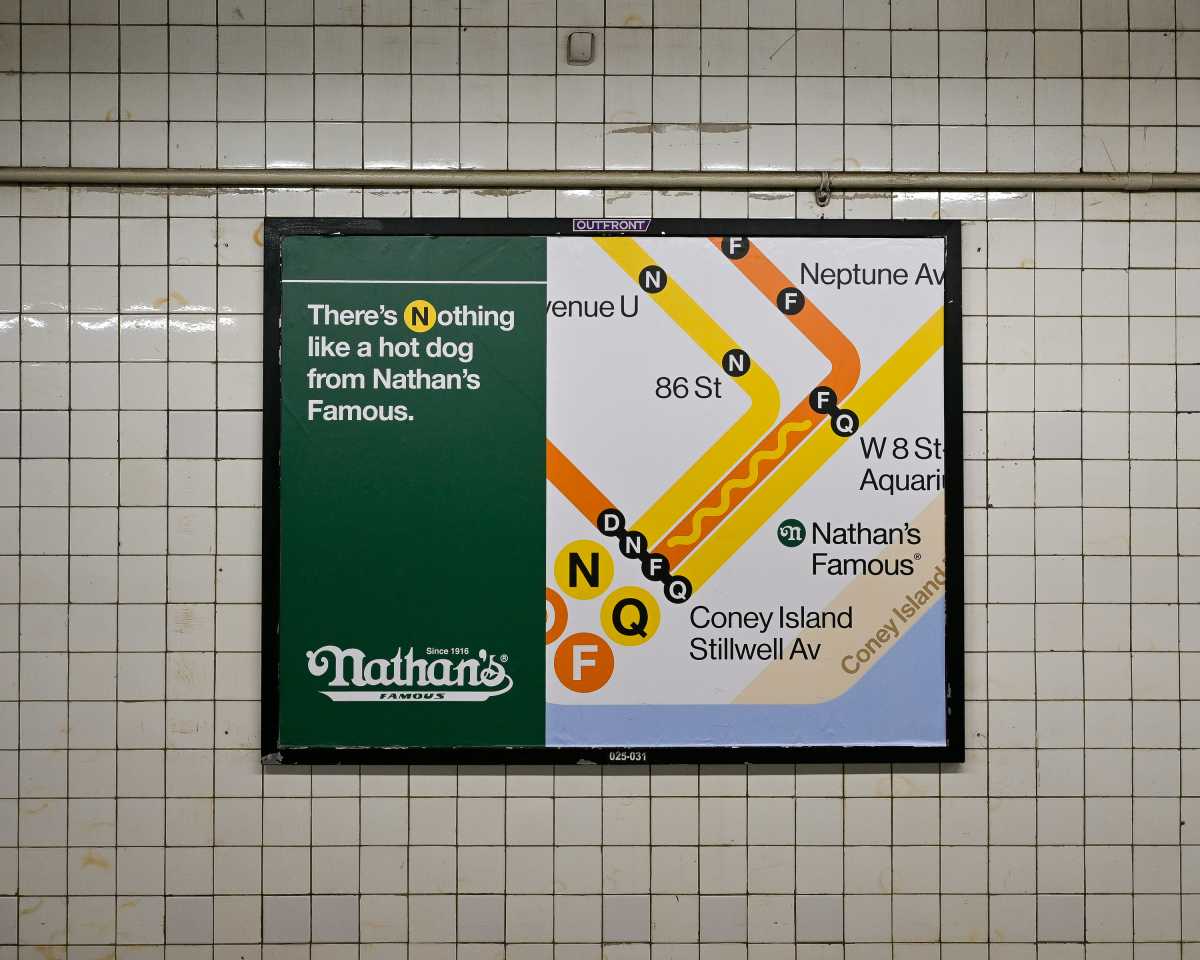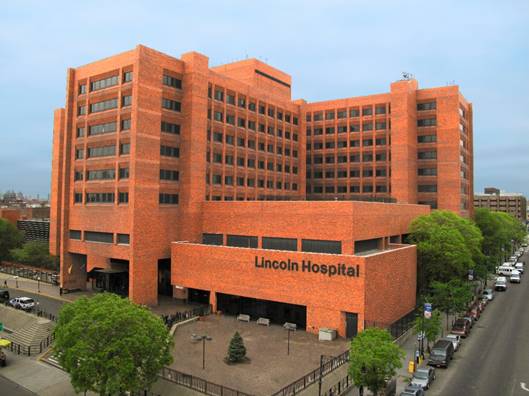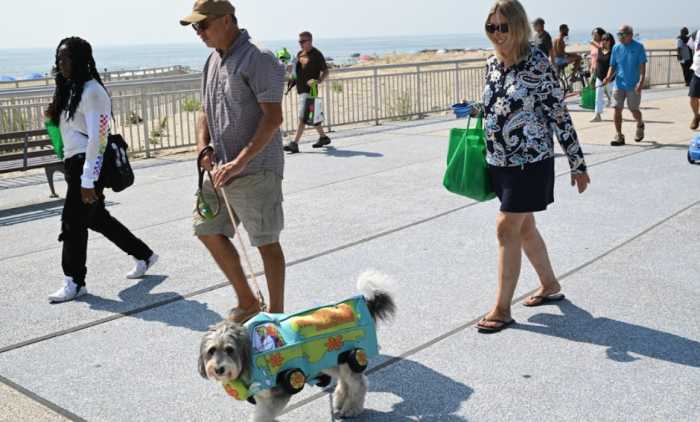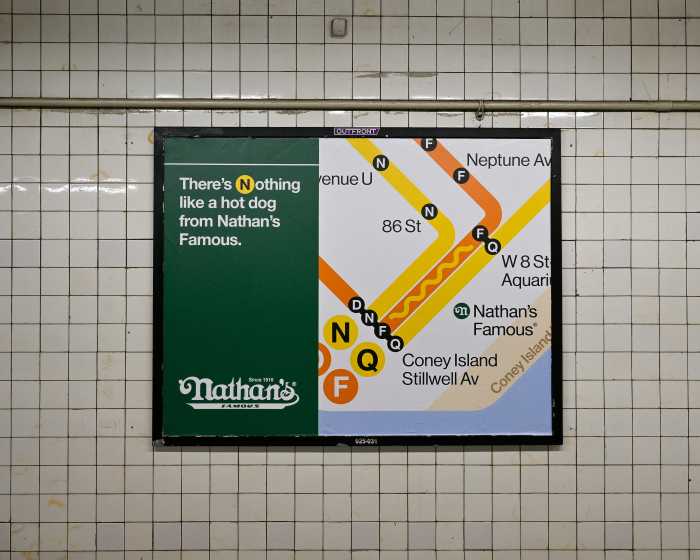BY Jefferson Siegel
A proposed new round of fare hikes engendered reactions ranging from indignation to frustration in Cooper Union’s Great Hall Monday night as MTA board members, some with ties loosened and bleary-eyed, heard from dozens of speakers critical of the hikes.
Mounting deficits at the transit agency left few at the hearing with any hope the third fare hike in three years can be stopped. Earlier this year, after a series of contentious hearings, service cutbacks resulted in the loss of two subway lines, 38 bus routes and numerous station agents.
Before the crowd even settled in, youthful senior Anita Romm of Riverdale began serenading MTA CEO Jay Walder and other board members, to the tune of “My Darling Clementine,”
“Jay Walder, Jay Walder, must you always raise the fares? You’ve made many people homeless, don’t you think that that’s unfair?”
“It’s terrible, terrible, terrible,” she lamented after several more verses. “It’s going to drive everyone who drives a car to use a car more often and pollute the planet.”
A few seats away, Moriah Kinberg of Transportation Alternatives was wearing a “One Less Car” tee-shirt. Kinberg, currently working on T.A.’s “Rider Rebellion Campaign,” declared, “Transit riders are mobilizing.” TransAlt’s Rider Rebellion “Bill of Rights” calls for at least one transit worker and one commuter to be seated as voting members on the MTA board.
“We think members of the New York State legislature should be here and held accountable for cutting $143 million in dedicated taxes from the MTA budget,” Kinberg added.
As speakers criticized board members for their apparent disregard for working commuters, shouts of “Fire the MTA” rose from the audience.
“We’ve been giving almost the same speech here year after year,” Susan Stetzer, district manager of Community Board 3, said. “It hurts businesses and people can’t afford to go out.”
One speaker, citing the plight of working people during a recession, used what he called the pizza analogy.
“You’re giving us the dollar slice for $2.25 and we’re still hungry,” he told the board.
Another woman yelled, “You’re putting eighty thousand people out of work!”
Another cried out, “This is a sham!”
Brooklyn resident Rubin Kanowitz, 78, cast a critical eye on board members’ attire.
“The $500 suits sitting up there never use the subway so they have no right to determine what fares should be,” he alleged.
David Kupferberg of the Committee for Better Transit also didn’t mince words.
“This public hearing is a farce!” he said, advising board members to “either start caring or step aside for those who will.”
An hour into the hearing, the audience was re-energized when Gavrielle Gemma, her back to the board members, took to the mic.
“They don’t care about anything we’re saying. You ride in limousines and you laugh at us,” she said, pointing towards the stage.
Waving a thick sheaf of papers she identified as an MTA leasing agreement with the city, she warned board members, “We own it. We’re going to cancel the leasing agreement.”
Gemma, a member of the group Take Back Our Transit System, said she obtained the revealing document under a Freedom of Information Request. The agreement, she said, details how the city’s transit network is owned by the city and could be leased to another, more responsible, controlling entity.
One of several public officials in attendance, State Assembly Member Richard Gottfried, told board members, “The moral assignment of the MTA…is to maintain and expand that system, not dismantle it, and to keep it affordable.”
Besides another hit at the farebox, a new tax is taxing the patience of many wage earners.
In March of 2009, the state imposed the Metropolitan Commuter Transportation Mobility Tax to aid the cash-starved MTA. The tax, imposed on certain employers and self-employed freelancers in the five boroughs and seven surrounding counties, was supposed to lessen the impact of the last round of hikes.
Nassau County has filed suit to roll back the tax and refund monies already paid to the MTA. Several municipalities in Putnam County are joining the suit, claiming the tax only applies to the MTA’s local service area and thus required a “home-rule” request from the affected counties.
Monday night’s hearing was the first of nine public forums to be held through September 21. It is anticipated the MTA will approve higher fares in October that will take effect on January 1.



